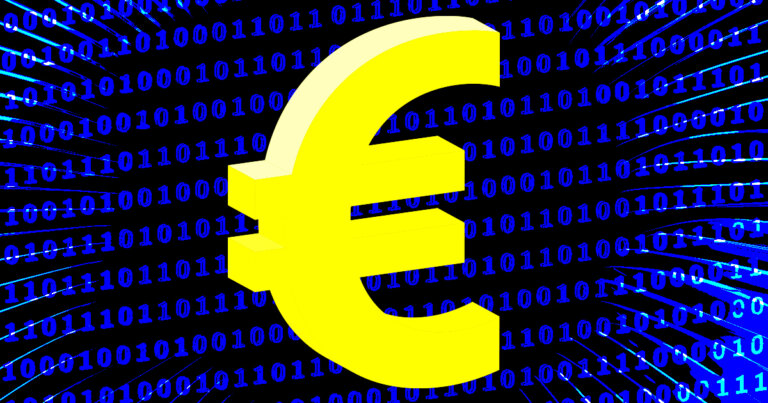 Digital Euro will be free to use, but privacy is up to legislators
Digital Euro will be free to use, but privacy is up to legislators Digital Euro will be free to use, but privacy is up to legislators
Digital euro will be accessible to all, but lawmakers will decide how the Central bank will access personal information.

Cover art/illustration via CryptoSlate. Image includes combined content which may include AI-generated content.
The Digital Euro will be free to use and accessible to all, but it would be the lawmakers who will decide what personal information the bank will have access to, the European Central Bank said in a Jan. 23 statement.
Member of the ECB’s Executive Board, Fabio Panetta, said:
It will then be up to you, the co-legislators, to establish the optimal balance between the protection of privacy and the achievement of other important objectives of a public nature.
The executive mentioned important public objectives, such as the fight against money laundering, the financing of terrorism, and tax evasion or compliance with any sanctions.
Instead of a direct-to-central bank model, researchers earlier recommended a supervised intermediary approach for the digital euro.
ECB believes supervised intermediaries are in the best position to identify use cases for conditional payments and other advanced payment services. The ECB could develop its own standalone payment app or allow private banks to incorporate the digital euro into their systems as intermediaries.
Digital euro preliminary phase completion by 2023
ECB began studying the digital euro in October 2021. By 2023, ECB hopes to complete the preliminary phase of the digital euro project.
Further, the European Commission will submit its legislative proposal regarding the currency this year, according to Fabio Panetta. However, as the executive stated, the apex bank would continue the currency’s investigative phase throughout the year.
Panetta added:
The priority of the digital euro project has always been clear: to preserve the role of central bank-issued money in retail payments while offering users the option to use it even where this is not possible today, such as in e-commerce.
Initial testing of the Digital Euro token EURM is already underway in Spain with a small group of applicants. However, the Eurogroup of the European Council said on Jan. 16 that future digital euros will not be programmable and will convert to traditional assets automatically.









































































































